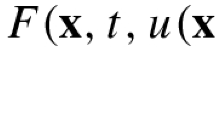Abstract
This paper studies a time-fractional inverse heat conduction problem for identifying unknown Robin coefficients in the boundary conditions. This inverse problem is generally ill-posed. Thus, a mollification technique is used to obtain a regularized problem. Then, a finite difference marching method is employed to solve this problem and finally, we get estimations to the unknown coefficients. The stability of the approach is proved and an error analysis of the approximate solution is provided. Three examples are investigated to show feasibility and efficiency of the proposed method.












Similar content being viewed by others
References
Atangana A, Baleanu D (2016) New fractional derivatives with nonlocal and non-singular kernel: theory and application to heat transfer model. Therm Sci 20(2):763–769
Baleanu D, Tenreiro Machado JA, Luo ACJ (2012) Fractional dynamics and control. Springer, New York
Barkai E, Metzler R, Klafter J (2000) From continuous time random walks to the fractional Fokker-Planck equation. Phys Rev E 61:132–8
Chaves AS (1998) A fractional diffusion equation to describe Levy flights. Phys Lett A 239:13–6
Depollier C, Fellah ZEA, Fellah M (2004) Propagation of transient acoustic waves in layered porous media fractional equations for the scattering operators. Nonlinear Dyn 38:181–190
Garshasbi M, Dastour H (2015) Estimation of unknown boundary functionsin an inverse heat conduction problem using a mollified marching scheme. Numer Algorithms 68(4):769–790
Guo B, Pu X, Huang F (2015) Fractional partial differential equations and their numerical solutions. World scientific, Singapore
Jin B, Rundell W (2012) An inverse problem for a one-dimensional time-fractional diffusion problem. Inverse Probl 28:075010
Jin B, Rundell W (2015) A tutorial on inverse problems for anomalous diffusion processes. Inverse Probl 31(3):035003
Li B, Wang J (2003) Anomalous heat conduction and anomalous diffusion in one dimensional systems. Phys Rev Lett 91:044301
Liu F, Anh V, Turner I (2004) Numerical solution of the space fractional Fokker-Planck equation. J Comput Appl Math 66:209–219
Liu JJ, Yamamoto M, Yan L (2015) On the uniqueness and reconstruction for an inverse problem of the fractional diffusion process. Appl Numer Math 87:1–19
Metzler R, Klafter J (2000) The random walks guide to anomalous diffusion: a fractional dynamics approach. Phys Rep 339(1):1–77
Murio DA (2002) Mollification and space marching. In: Woodbury K (ed) Inverse engineering handbook. CRC Press, Boca Raton
Murio DA (2006) On the stable numerical evaluation of Caputo fractional derivatives. Comput Math Appl 51:1539–1550
Murio DA (2007) Implicit finite difference approximation for time fractional diffusion equations. Comput Math Appl 56:1138–1145
Murio DA (2008) Time fractional IHCP with Caputo fractional derivatives. Comput Math Appl 56:2371–2381
Murio DA, Mejia CE (2008) Generalized time fractional IHCP with Caputo fractional derivatives. J Phys 135:1–8
Nguyen HT, Le DL, Nguyen VT (2016) Regularized solution of an inverse source problem for a time fractional diffusion equation. Appl Math Model 40(19):8244–8264
Oldham KB, Spanier J (1974) The fractional calculus: theory and application of differentiation and integration to arbitrary order. Academic Press, New York
Podlubny I (1999) Fractional differential equations. Academic Press, New York
Raberto M, Scalas E, Mainardi F (2002) Waiting-times and returns in high-frequency financial data: an empirical study. Physica A 314:749–55
Sayevand K, Jafari H (2016) On systems of nonlinear equations: some modified iteration formulas by the homotopy perturbation method with accelerated fourth-and fifth-order convergence. Appl Math Model 40(2):1467–1476
Taghavi A, Babaei A, Mohammadpour A (2017) A stable numerical scheme for a time fractional inverse parabolic equation. Inverse Probl Sci Eng 25(10):1474–1491
Wang JG, Wei T, Zhou YB (2015) Optimal error bound and simplified Tikhonov regularization method for a backward problem for the time fractional diffusion equation. J Comput Appl Math 279:277–292
Wei T, Zhang ZQ (2013) Reconstruction of a time-dependent source term in a time-fractional diffusion equation. Eng Anal Bound Elem 37:23–31
Wei T, Zhang ZQ (2014) Stable numerical solution to a Cauchy problem for a time fractional diffusion equation. Eng Anal Bound Elem 40:128–137
Yan L, Yang F (2014) Efficient Kansa-type MFS algorithm for time-fractional inverse diffusion problems. Comput Math Appl 67:1507–1520
Yuste SB, Acedo L (2005) An explicit finite difference method and a new Von Neumann-type stability analysis for fractional diffusion equations. SIAM J Numer Anal 42:1862–1874
Zhang Y, Xu X (2011) Inverse source problem for a fractional diffusion equation. Inverse Probl 27(3):035010
Acknowledgements
The authors would like to thank the anonymous referees for their constructive comments and suggestions.
Author information
Authors and Affiliations
Corresponding author
Rights and permissions
About this article
Cite this article
Babaei, A., Banihashemi, S. A Stable Numerical Approach to Solve a Time-Fractional Inverse Heat Conduction Problem. Iran J Sci Technol Trans Sci 42, 2225–2236 (2018). https://doi.org/10.1007/s40995-017-0360-4
Received:
Accepted:
Published:
Issue Date:
DOI: https://doi.org/10.1007/s40995-017-0360-4
Keywords
- Ill-posed problem
- Caputo’s fractional derivative
- Time-fractional heat conduction equation
- Mollification
- Marching finite difference method




